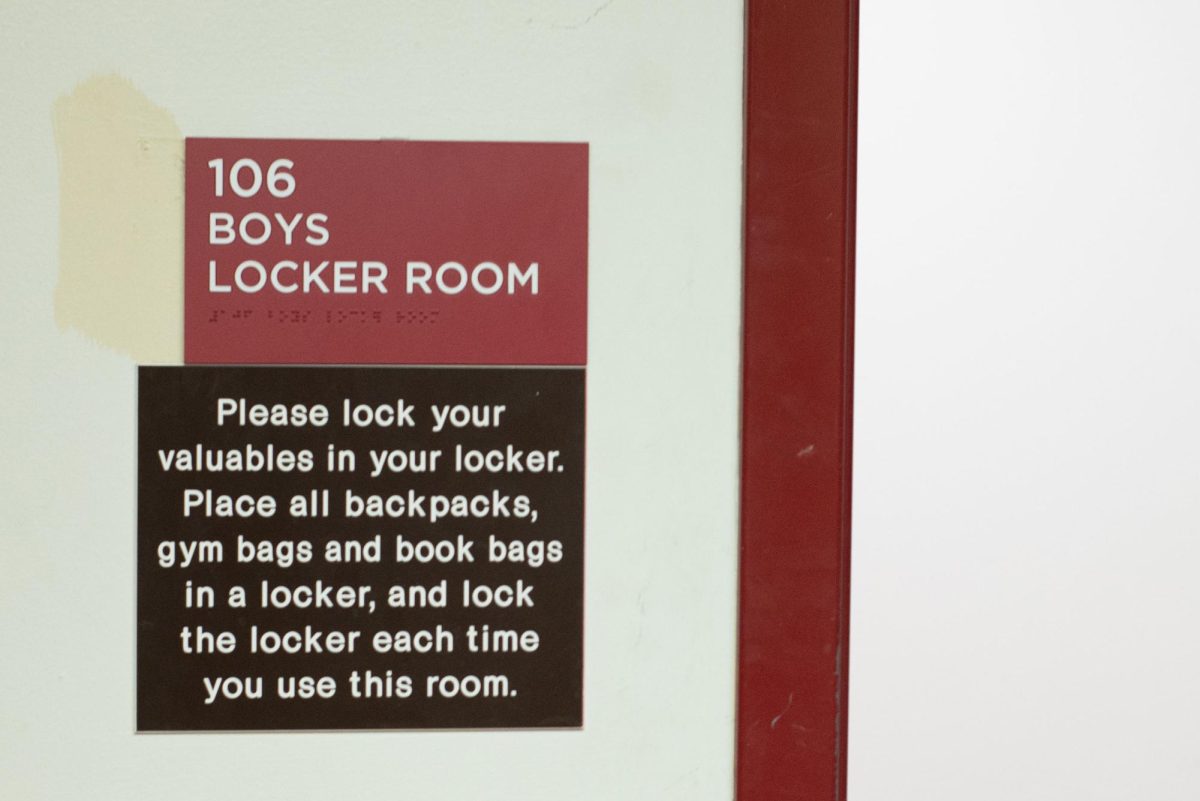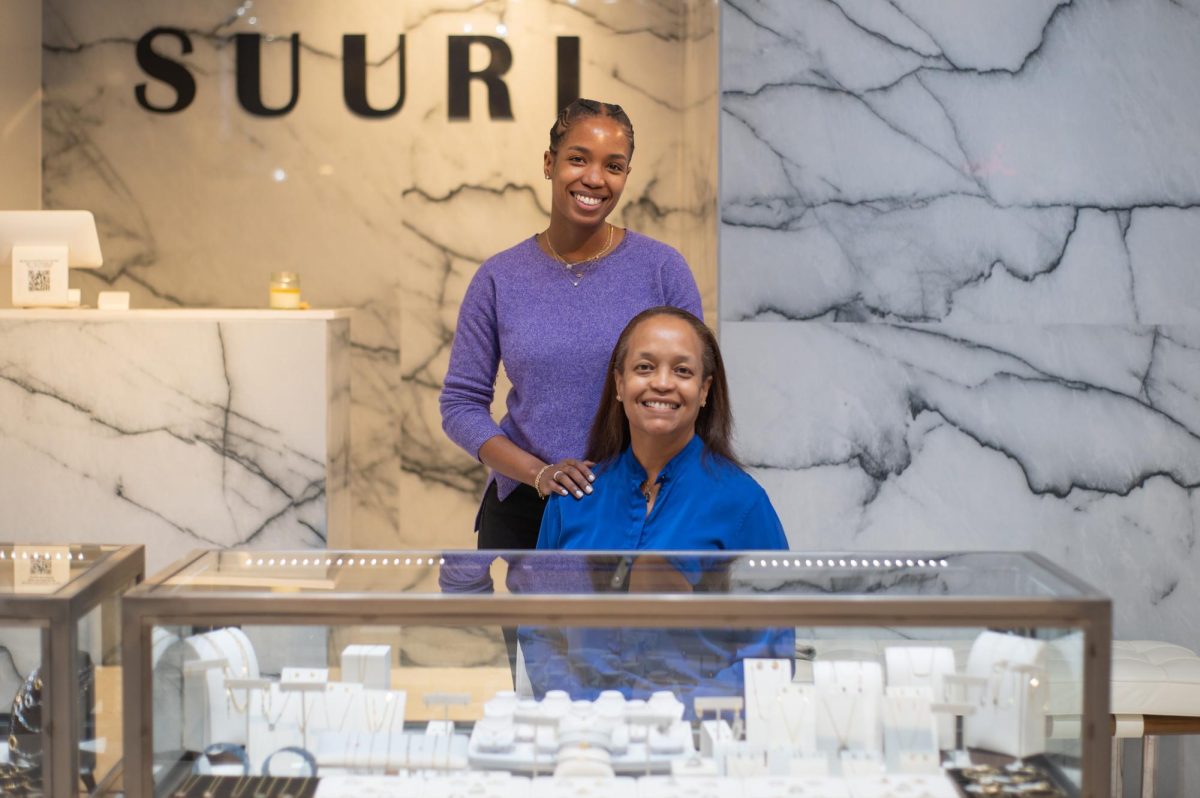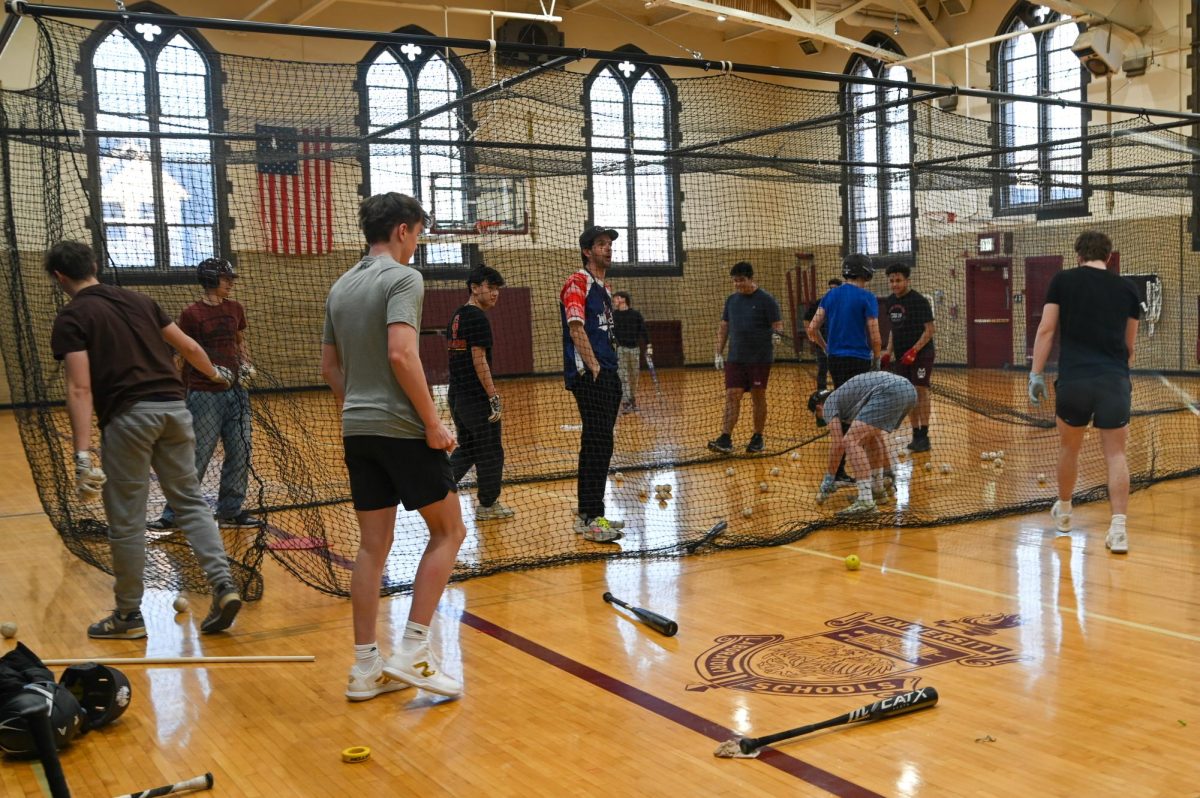With all its maroon lockers and wooden benches, the boys locker room anticipates the swarm of boys about to arrive as their P.E classes conclude. Doors swinging open, students in their uniforms pour in and induce open conversations with friends. Except some of them consist of sexism, homophobia and other forms of discrimination in a range of contexts. It’s just another day in the boys locker room. No questions asked.
This culture of toxicity prompts thoughts and concerns from those who identify as male at U-High, a majority of whom have experience in these spaces, locker rooms or elsewhere.
Senior Lincoln Richardson, a student athlete and Lab lifer, said that the locker room is one of the most common settings for this talk, and he believes the isolated and private environment gives way for structures of toxicity.
Lincoln said, “It’s an environment where men feel comfortable to say whatever they want, because they feel it’s an unchallenged space. And frequently, the kinds of things that are said are ignorant and mean, or bigoted and hateful.”
Boys locker room attendee Terry Shanks said that he aims to make the locker room a safe space where this talk is not tolerated. Mr. Shanks also said that he acknowledges how teenage boys often create standards which can make it harder for them to bring up or report this talk.
Mr. Shanks said, “Boys are more private when it comes to the locker room; they got this code of telling on each other, they got all types of little codes they deal with in here. But when it’s brought to my attention, I address it regardless of their codes and none of that stuff don’t count when it comes to disrespect in the locker room.”
Lincoln said that based on his personal experiences, standing up against sexist and homophobic statements in these spaces can be challenging — often alienating one from other young men.
Lincoln also said he believes this talk extends well beyond the locker room and into the outside world.
Lincoln said, “Tolerating and engaging in this ‘locker room talk’ absolutely becomes a part of how you view and interact with the world, and so it’s going to affect how you interact with people outside of ‘the boys’ space.”
Junior Ayush Mishra, who plays soccer and participates in a variety of extracurriculars with other male students, said he also believes peer pressure and social norms are responsible for how this talk thrives in spaces of young men.
Ayush said, “I think sometimes behind closed doors, people will say things they don’t mean or want to, in order to get some sort of attention or validation from the people around them, right? And, even if they don’t truly believe in what they’re saying, they’ll say it to try fitting in because that is the social norm in certain scenarios.”
Christian Martinez, Young Men of Color co-president and a member of the water polo team, said he believes young men should embrace the individual, active decision to not participate in this talk.
Christian said, “By personally not choosing to do something like that, it might influence other people to also stray away from that. You’re also choosing to say these things, so it’s just a matter of [making] the choice not to.”
Reporting for the U-High Midway, this is Taariq Ahmed, with additional reporting contributed by Edward Park.
























































Shabaana • Jan 23, 2024 at 8:21 pm
Thank you Riq for addressing another important and relevant topic!